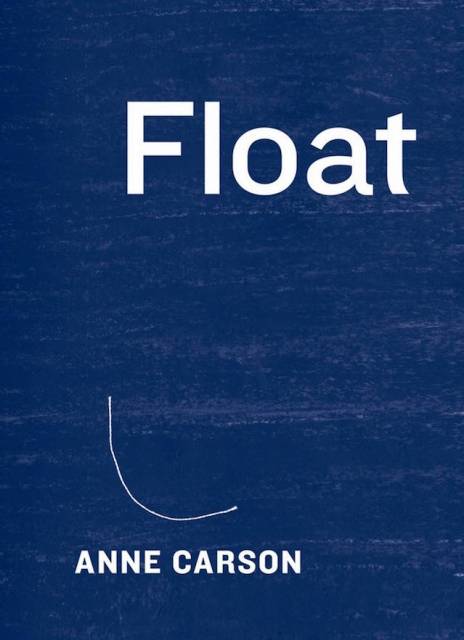
Hi and welcome to this week’s Lez Liberty Lit!
Things About Queer Books (And Other Books Relevant To Your Interests)
“Now is the time to refuse the blurring of memory,” writes Chimamanda Ngozi Adichie in a call to action in the New Yorker:
“Now is the time to resist the slightest extension in the boundaries of what is right and just. Now is the time to speak up and to wear as a badge of honor the opprobrium of bigots. Now is the time to confront the weak core at the heart of America’s addiction to optimism; it allows too little room for resilience, and too much for fragility. Hazy visions of ‘healing’ and ‘not becoming the hate we hate’ sound dangerously like appeasement. The responsibility to forge unity belongs not to the denigrated but to the denigrators. The premise for empathy has to be equal humanity; it is an injustice to demand that the maligned identify with those who question their humanity.”
Roxane Gay’s Difficult Women is coming this January and Vice has an excerpt.
Reproductive rights are under attack. Why not read these ten works of speculative fiction so you can be even more afraid of our collective dystopic future?
“I stole my first diary.”
Self-righteousness is not morality.
What’s it like to trace Octavia Butler’s footsteps through her archives?
The Al-Qarawiyyin Library in Morocco, is the world’s oldest library.
When “The Lottery” goes to Stars Hollow.
Reading is magic but it doesn’t make you magic, sorry.
Anne Carson’s Float and Mary Ruefle’s My Private Property share some striking similarities: “They share a vigor, a sanguine, impassioned engagement with language, the results of which are, in turn, knavish, breathtaking, totally thrilling.”
Bodice rippers were “the first sexually frank popular literature for women, which surfaced from the cultural chaos of the ‘70s and thrives to this day, albeit in a much modernized form,” writes Kelly Faircloth in a history of romance novels and the sexual revolution.
Glenn Ligon and Claudia Rankine discussed race, art, the importance of language and more at Art Basel Miami Beach.

Lez Talk is a collection of Black lesbian fiction and, at Ms., editors Dr. Stephanie Allen and Lauren Cherelle discuss the anthology, finding Black lesbian feminist characters, collaboration and more.
Eileen Myles, Ruth Ozeki, Porochista Khakpour, Anna March and Alexandra Kleeman discussed writing the body and women and bodies and you can read the whole thing at LitHub. Eileen Myles says:
“I sort of feel like writing creates the body, in a way. When I really think about how I felt when I was a kid—I mean, when I was a kid I guess I wrote somewhat, but I drew more, you know. That somehow delivered me into dreams and into some awkward state; it was some way to bear the present, or school, or whatever. But when I stop to think about it, when I really began to have a pretty frequent practice of setting words down, I started to exist. I started to exist on the page. It was almost like until I was out there, I couldn’t be in here, you know? I absolutely don’t say—I could never say—that I feel at home in my body, but I think that my writing created a safe place for it.”
Yes, fascism can happen here.
Anne LaBastille lived alone in a cabin on the edge of a lake to just “write and relax.” You could read her like a feminist Thoreau, if Thoreau constantly had lawyers and armed men trying to kick him out.
The Millions’s Year In Reading is back and reveals what authors and writers were obsessed with in 2016.
You know those people who are very particular about what they write with and what they write on and where they sit and what angle the light is at and what program they’re using and and and? Next time you try to convince them that Moleskin notebooks are a luxury and not a necessity, bring up Emily Dickinson writing on chocolate wrappers. (The piece is also a really great discussion of her work but make your point and then go back for that.)
Anne of Green Gables is great.
How do you map utopian Los Angeles?

Books! They are really great. You just won’t believe how great they are. You may think that the Internet’s great, but that’s just peanuts compared to books. In Lez Liberty Lit, we talk about queer books and literary shit that’s happening that you should probably care about.
The name “Liberty Lit” was inspired by the short-lived literary journal produced by Angela Chase at Liberty High School in 1994.








Comments
You should cover the controversy over upcoming YA novel “Ramona Blue”. Just check out its page on Goodreads and read the reviews.
This sounds a lot like the Australian YA novel ‘Pink’ by Lili Wilkinson.
omg the lottery in stars hollow. i didn’t notice who it was by at first, but of course it was mallory ortberg. who else could it be? i’m having trouble with my overlap of friends who both like gilmore girls and have read that short story, but i had one fellow lit nerd friend love it and want to assign it to her students, so that’s pretty good.
Anne! My kindred spirit!